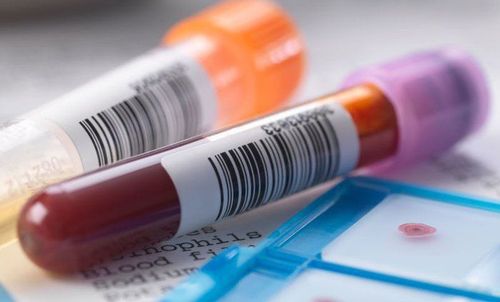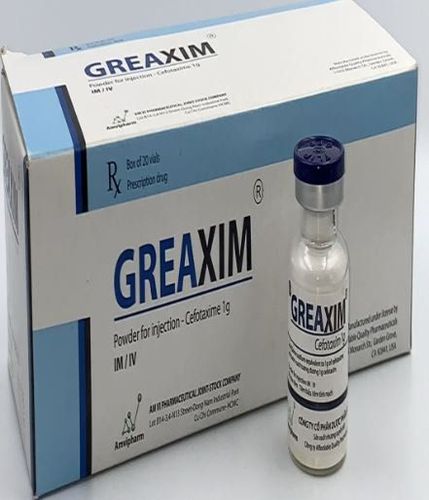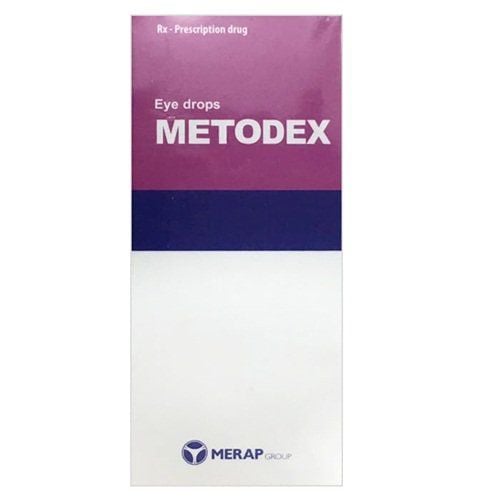This is an automatically translated article.
Inflammation is a normal response of the immune system to protect the body from infection, injury, or a specific disease. Sometimes in autoimmune diseases, the immune system attacks healthy cells on its own and causes inflammation. The article will provide readers with some basic information about inflammatory conditions and manifestations in the body.1. What is inflammation?
Inflammation occurs in all subjects. The immune system creates inflammation to protect the body from infection, injury, or disease. Sometimes in autoimmune diseases such as certain types of arthritis and inflammatory bowel disease, the immune system attacks healthy cells on its own. In general, inflammation can be classified into two main categories as follows:Acute inflammation is usually short-lived but is often severe. Acute inflammation usually resolves in two weeks or less. Symptoms appear quickly. With this type of inflammation, the body will return to the state it was in before the inflammation. Chronic inflammation is milder and is usually a less severe form of inflammation. It usually lasts more than six weeks. It can happen even when there is no injury and does not always end when the disease or wound is healed. Chronic inflammation is associated with immune disorders and even prolonged stress.
2. What are inflammatory manifestations?
Specific symptoms of inflammation will depend on where in the body the inflammation is and what is causing it. Prolonged inflammation can lead to a number of symptoms and affects the body in a variety of ways. Some common inflammatory manifestations of chronic inflammation can include:Body aches. Constant fatigue and insomnia. Anxiety, depression and other mood disorders. Gastrointestinal problems such as constipation, diarrhea, indigestion, and acid reflux. Weight gain Frequent infections. Inflammatory manifestations can also vary depending on the type of inflammation, specifically as follows:
In some autoimmune diseases, the immune system affects the skin leading to a rash. Some types of inflammation attack specific glands, affecting hormone levels in the body. In rheumatoid arthritis, the immune system attacks the joints and causes inflammatory manifestations such as joint pain, swelling, stiffness or loss of joint function, fatigue, numbness and tingling, and limited range of motion. In inflammatory bowel disease, inflammation occurs in the digestive tract and can cause some common inflammatory manifestations such as diarrhea, stomach pain, bloating, weight loss, anemia, bleeding sores. In multiple sclerosis, the myelin sheath is attacked. This is the protective covering of nerve cells. As a result, patients may experience symptoms such as numbness and tingling in an arm, leg, or one side of the face, balance disturbances, double vision, blurred or partial vision problems, and cognitive problems. like brain fog
3. What is the cause of inflammation?
Many factors can lead to inflammation, such as infection, taking certain medications, and exposure to irritants or foreign materials. Repeated episodes of acute inflammation can also lead to a chronic inflammatory response. There are also certain foods that can cause or worsen inflammation in people with immune disorders. These foods include sugar, refined carbohydrates, alcohol, processed meats, and trans fats.4. How is inflammation diagnosed?
There is no single test that can diagnose inflammation or its causes. Based on the patient's symptoms, the doctor can prescribe the appropriate types of tests to make a diagnosis. Some of the types of tests commonly used to diagnose or monitor inflammation in the body include:4.1. Blood tests
Serum protein electrophoresis (SPE) SPE is considered the best way to confirm chronic inflammation. It measures certain proteins in the blood to identify abnormalities. Too much or too little of these proteins can indicate inflammation and indicate other conditions.C-reactive protein (CRP) CRP is a protein produced in the liver in response to inflammation in the body. High levels of CRP in the blood can occur due to a number of inflammatory conditions. Although this test is very sensitive for inflammation, it does not help distinguish between acute and chronic inflammation, as CRP will be elevated in both. High CRP levels combined with certain symptoms can help your doctor make a diagnosis.
Erythrocyte sedimentation rate (ESR) ESR test is also known as erythrocyte sedimentation rate test. This test indirectly measures inflammation by measuring how quickly red blood cells sink into the bloodstream. The faster they sink, the more likely you are to get inflammation. The ESR test is rarely done alone, as it does not help identify the specific cause of the inflammation. Instead, it can help your doctor determine that inflammation is occurring. It can also help them monitor inflammation in the body.
Plasma viscosity This test measures the viscosity of blood. Inflammation or infection may increase plasma viscosity.
4.2. Other diagnostic tests
If your doctor believes the inflammation is caused by a virus or bacteria, he or she may order other specific tests. If you have certain symptoms — such as chronic diarrhea or numbness on one side of your face — your doctor may order imaging tests to check certain parts of your body or brain. MRI and X-ray are commonly used. To diagnose inflammation of the digestive tract, a doctor may perform a procedure to view the insides of the digestive tract, such as an endoscopy.5. Treat inflammation
5.1. Non-drug treatment
Sometimes, inflammation in the body can be treated simply by changing the diet. By avoiding sugar, trans fats, and processed foods, symptoms of inflammation can be reduced. In addition, there are also foods that can fight inflammation such as peaches; fatty fish such as salmon or mackerel; broccoli; butter; tea; mushroom; spices like turmeric, ginger, cloves.Besides, you can reduce inflammation by following these simple ways:
Take supplements: Your doctor can help you decide which is best and safest for you. Exercise more often. Reduce stress. Quitting smoking. Treat and manage pre-existing conditions well.
5.2. Drug treatment
For general symptoms of inflammation, there are several medications that can be used including:NSAIDs: Nonsteroidal anti-inflammatory drugs (NSAIDs) are often the first line of defense in the short-term treatment of pain and inflammation. Most of these medications can be purchased over the counter. Common NSAIDs include aspirin, ibuprofen, naproxen, diclofenac, and more. NSAIDs can be very effective for inflammation, but some interactions and side effects occur, especially when taken for a long time. long. Corticosteroids: Corticosteroids are a type of steroid commonly used to treat swelling and inflammation as well as allergic reactions. Corticosteroids are available as a nasal spray, aerosol or oral tablet. Long-term use of corticosteroids can cause side effects and some drug interactions. Topical Anti-Inflammatory Analgesics: Topical anti-inflammatory analgesics are commonly used for acute or chronic pain. They have fewer side effects than systemic drugs. Topical products and creams may contain different types of active ingredients. Some topical medications contain NSAIDs such as diclofenac or ibuprofen. This can be helpful for people with inflammation and pain in a specific body part. Other topical creams may contain natural ingredients with evidence of anti-inflammatory properties. You should not use a topical cream that only relieves pain, such as capsaicin. In general, inflammation is a normal and natural part of the body's immune response. However, prolonged or chronic inflammation can lead to adverse effects. Chronic inflammation is often associated with immune disorders. Acute inflammation is a normal part of the healing process and can occur with an infection, injury, or even a small cut in the skin. Acute inflammation usually resolves within a few days, unless it is left untreated. If you are experiencing any signs of persistent inflammation, seek medical attention for diagnosis and treatment.
Please dial HOTLINE for more information or register for an appointment HERE. Download MyVinmec app to make appointments faster and to manage your bookings easily.













